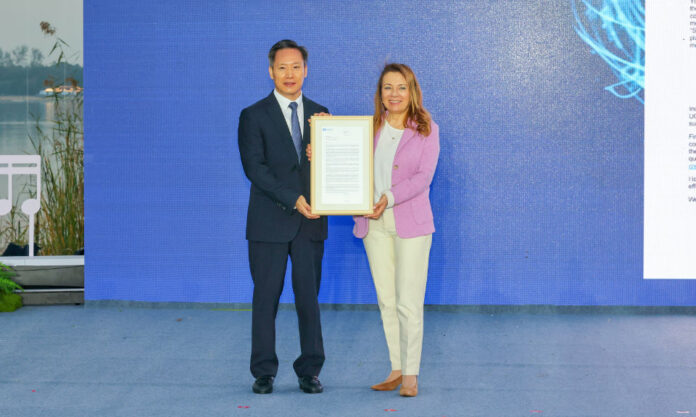Their faces beamed, alive more than perhaps ever before, still fresh from the exciting recent news. And now, a foreign-internet celebrity had come to sing with them, as their brass band performed for senior residents in a Wuxi retirement community.
On 31 October, 2025, Wuxi in Jiangsu Province was announced China’s first “City of Music”, officially joining the UNESCO Creative Cities Network. It is a title well worthy of further investigation. Music unites every country and culture in the world so what does it take to become a City of Music?
The announcement was followed by a celebratory festival on Wuxi’s Bogong Island, on the afternoon of Saturday 15 November, of which it seemed all of Wuxi wanted to be a part. Therein, Secretary of the UNESCO Creative Cities Network (UCCN) Denise Bax, within the Culture Sector of UNESCO, presented Mayor of Wuxi Jiang Feng with the approval letter recognising Wuxi as a “World Music Capital”.
In her inspiring speech, Bax said, “I would like to pay tribute to you, the citizens of Wuxi. In this city, music is not only performed and celebrated, but also believed and shared as the universal language that unites communities. … In becoming a UNESCO Creative City of Music, Wuxi joins a global community of cities that believe in the transformative power of culture”.
City of Music is a designation appointed by UNESCO to a number of cities around the world “that have identified creativity as a strategic factor for sustainable urban development”. Wuxi hereby joins cities such as Glasgow in the United Kingdom, Abu Dhabi in the United Arab Emirates and Kingston in Jamaica. Some 84 cities to date have been granted the distinction.
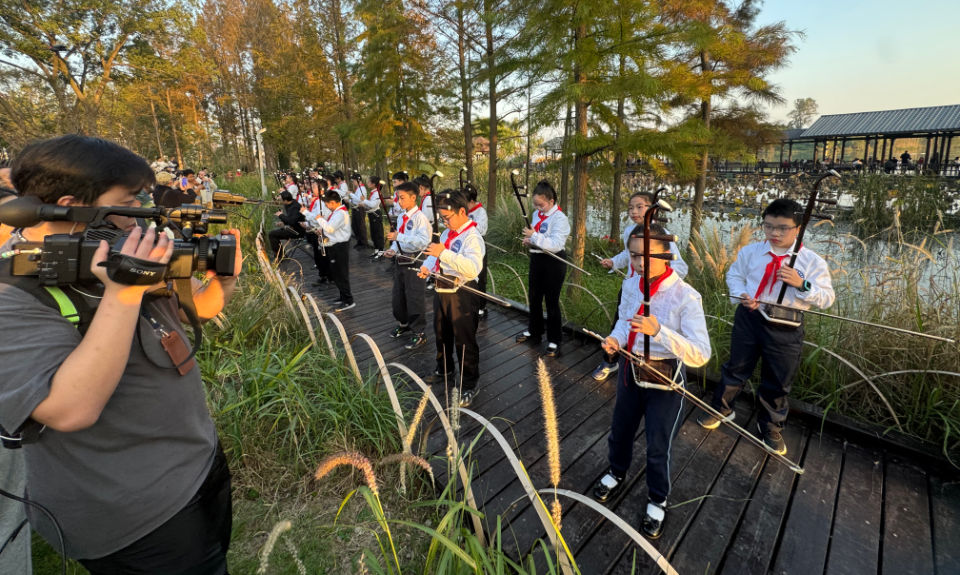
Saturday afternoon’s excitement also featured a brass band, a children’s lakeside erhu ensemble, captivating dance from a school for the visually impaired, plus much more.
That brass-band orchestra was comprised of entrepreneurs in the main; company owners who choose to spend what little free time they have perusing that they love. And it is precisely this which is a crucial ingredient to why Wuxi has won such a prestigious worldwide honor.
Practicing together for 10 years, the Wuxi Entrepreneur Art Troupe has played almost every venue imaginable; retirement communities, universities, enterprises, for the army, children, new year’s dinners etc. For them, Wuxi as City of Music is a dream coming true. And with the Troupe’s orchestra playing as backing for Shanghai based French-celebrity singer Alice Roche the following day was the highlight of their visit.
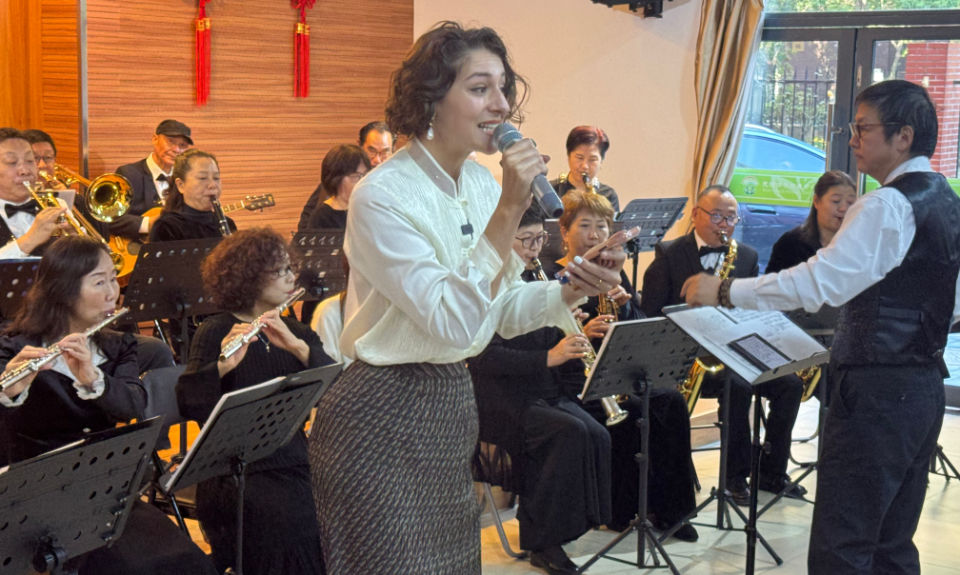
Still within the voluntary sphere, Vice President of the self-organized Wuxi Saxophone Club Xiao Zhengqing teaches more than 400 amateur saxophonists. They come from different industries, but they all love music and saxophone. Xiao even took them to participate in the World Saxophone Congress this year, making these citizens of Wuxi who love music indeed very popular.
Elsewhere, the city centre is the surprising home for the Wuxi National Orchestra. Guo Pan (29), a graduate with both bachelor’s and master’s degrees from the Composition and Conducting Department of the Shanghai Conservatory of Music, is the Orchestra’s Assistant Conductor and also somewhat surprising for her youth in a profession mostly dominated by more senior males.
Principal flautist Wang Yijing who graduated with a bamboo flute major of the Central Conservatory of Music, feels that the UNESCO distinction shall see more musical events taking place in Wuxi, leading to more people making Wuxi an essential bucket-list item.
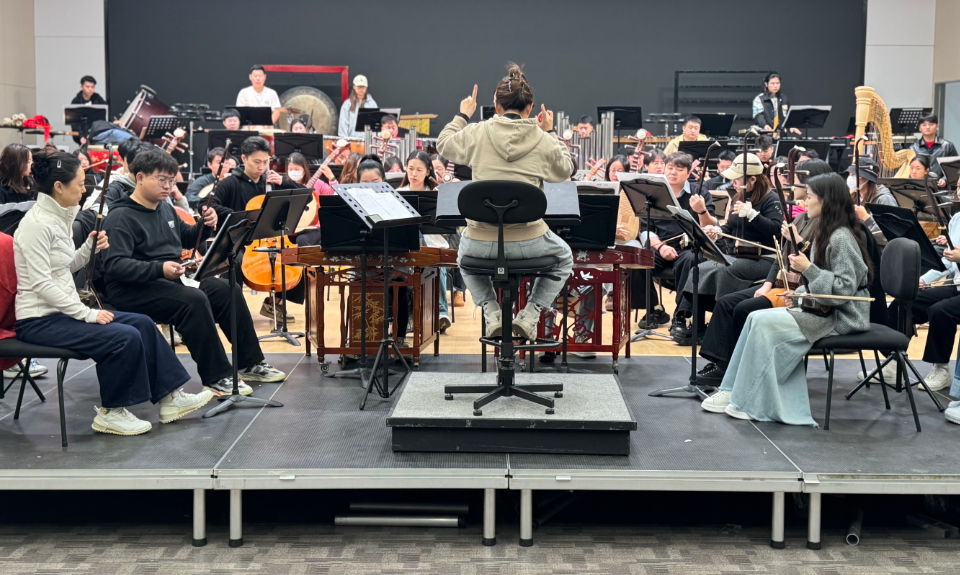
Meanwhile, Jason Hao who plays double bass for the Orchestra, has his own dreams in a faraway land. He says he hopes to peruse his musical-career dreams in the world of Jazz in the USA and that perhaps Wuxi’s musical award might in some way enable this.
Yet, for proof of Wuxi’s qualification to be City of Music, one need look no further than the Hongshan Relic Museum that is part of the Grand Canal National Culture Park, and therein the Original Site of Qiu Chengdun’s Warring States noble tomb. In keeping with the belief that our essential daily items will be needed by us in the afterlife, Qiu and others were buried with 400 pottery replicas of bronze musical instruments, which were among those unearthed from seven aristocratic tombs dating back to the Warring States period.
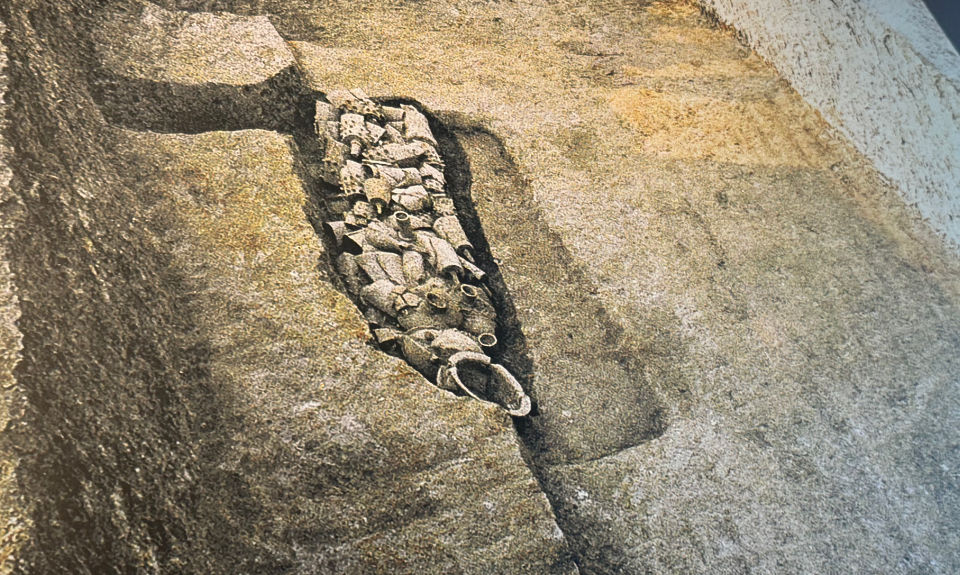
But also not lost on Wuxi is the synergy between sight and sound. That the visual delight of an ocean’s waves is almost insignificant without the waves of sound they create characterizes that to be explored in the century-old building that is now the Sound Hall within Wuxi’s Yingyueli in Huishan Ancient Town. As the ripples lap by the adjacent and revitalized canal area that is core to Liangxi District and now teeming with tourists, don a pair of headphones to hear, for example, the Yangtze River or all genres of music with tales to tell. Plenty of records are for sale too, all watched over by a nearby colossal cyber statue of legendry erhu player A-Bing.
That Wuxi native’s influence is pervasive, making vinyl one thing, but snake skin altogether another. Hence the three-meter long length of python exterior that forms a highlight exhibit at the Meicun Erhu Industry Park in Wuxi. This cultural and tourism venue centered around the display of erhu craftsmanship and the experience of erhu making greets visitors with precision techniques, such as the searing of said python skin, with accompanying odor, makes the erhu truly stand out as a supreme example of intangible cultural heritage. It’s just part off a process in the hands of masters who craft the instrument using a tuning rod, the aforementioned serpentine, and the various other erhu components.
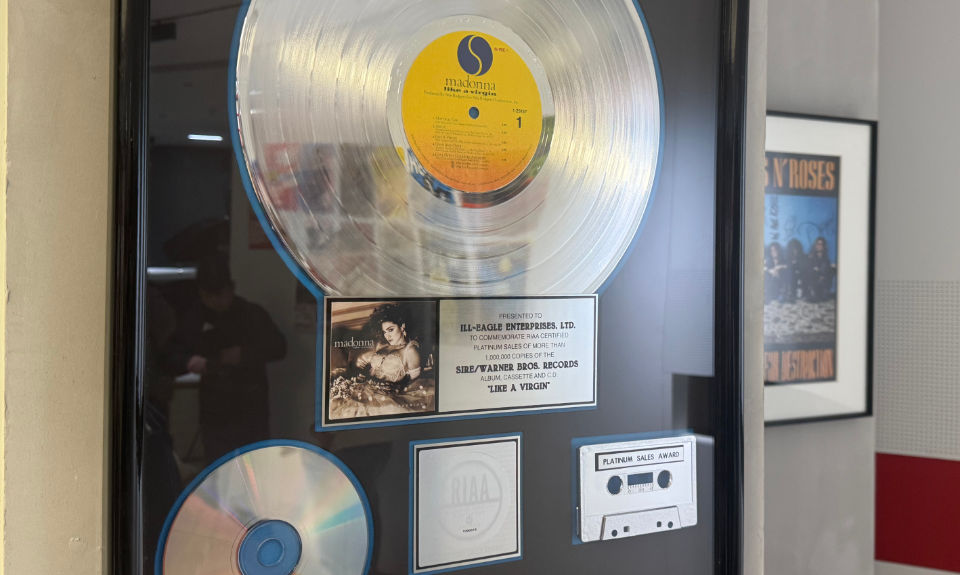
Links such as these between the sounds of yesteryear and today have not been lost on Kent Zhang, curator of an audio museum arguably beyond compare. With tens of thousands of exhibits spanning every modern form of audio recording and playback; from audio cassettes, open-reel tape machines and the Walkman, to the Discman, Digital Audio Tape and Minidisc, plus signed albums from mega stars such as Michael Jackson, Jimi Hendrix and many more, to platinum-certified discs by Madonna (Like a Virgin) and U2 (The Joshua Tree); Kent has spent the last 20+ years building this collection out of works collected from across the world, both online and offline, and then constructing a purpose-built facility to house them all. It’s a veritable City of Music within a City of Music.
Zhang’s reasoning is simple; that the world needs to know, today’s youth in particular, the origins of this enormous global modern music legacy.
Back with the Wuxi National Orchestra, the youthful Guo’s dreams are consolidated by Wuxi’s UNESCO distinction. Could it perhaps increase her chances of conducting for China? “Of course!”, she laughs.
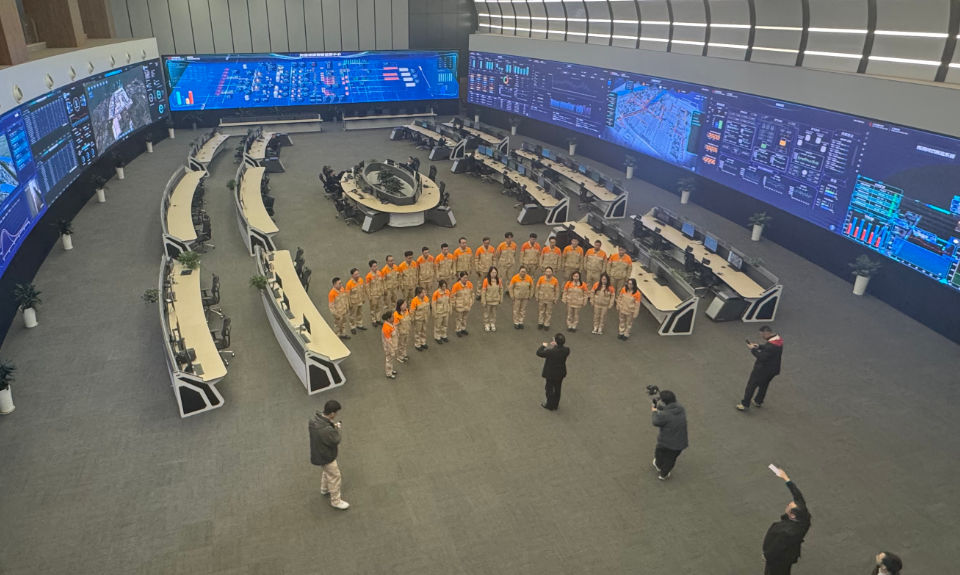
While Guo’s conviction is infectious, it is the juxtaposition between musical tradition dating back thousands of years and some of the world’s greatest, latest technology, in the Digital Intelligence Center of Xingcheng Special Steel in Jiangyin City that perhaps most sells Wuxi’s UNESCO suitability.
Why? Because Wuxi was historically connected with hard-core industry. Now though, technology has come to lend a hand, and with it some of the musical pastimes it affords. For therein, the assembled choir of steel workers in full voice remains the best possible answer to the question, “Does Wuxi deserve to be a UNESCO City of Music?”. Unequivocally, yes!


